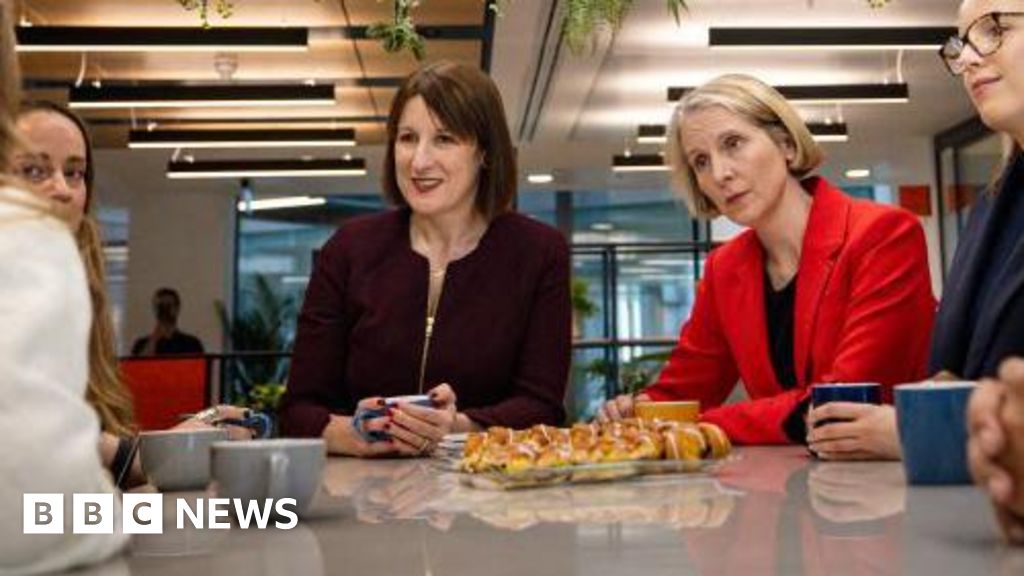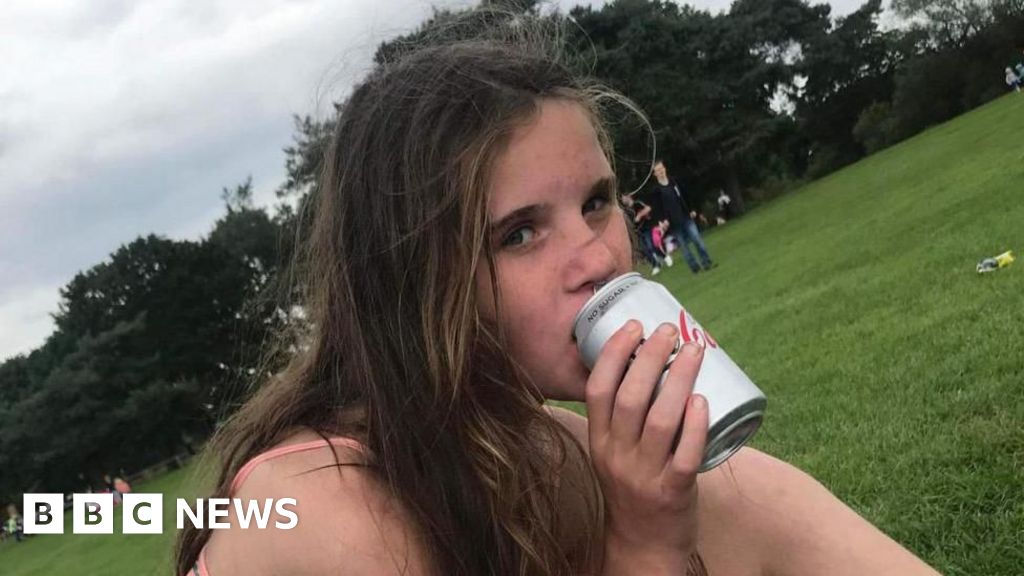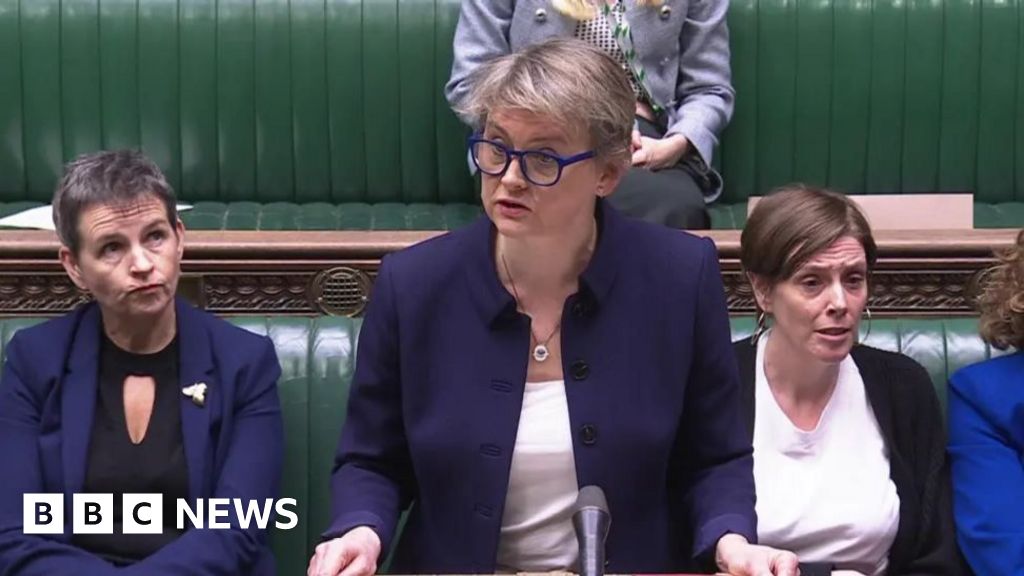ARTICLE AD BOX
Image source, Getty Images
Image caption, It is thought New Zealand will be able to sell more lamb to the UK under the dealThe UK has agreed a free trade deal with New Zealand which it says will benefit consumers and businesses.
Prime Minister Boris Johnson said the deal will cut costs for exporters and open up New Zealand's job market to UK professionals.
The government hopes it is a step towards joining a trade agreement with the likes of Canada and Japan.
But the New Zealand deal itself is unlikely to boost UK growth, according to the government's own estimates.
Labour and the National Farmers Union (NFU) said that it could hurt UK farmers and lower food standards.
Overall, only a tiny proportion of UK trade is done with New Zealand, less than 0.2%.
Mr Johnson and New Zealand's Prime Minister, Jacinda Ardern, agreed the pact in a video call on Wednesday after 16 months of negotiations.
Tariffs will be removed on UK goods including clothing, ships and bulldozers, and on New Zealand goods including wine, honey and kiwi fruits.
Professionals such as lawyers and architects will be able to work in New Zealand more easily, the government said.
Step to bigger trade deal?
However, the deal is not likely to increase UK economic growth - or GDP - according to the UK government's own assessments. New Zealand will fare slightly better as it may be able to sell more lamb to the UK.
But, like the trade deal recently struck with Australia, the UK hopes this is a step towards joining the Comprehensive and Progressive Agreement for Trans-Pacific Partnership (CPTPP) - a trade bloc that includes Australasia, Canada, Mexico and Japan among others.
The UK already has deals with many of the members, rolled over from when it was in the EU. But CPTPP membership would give it more access in terms of services and digital trade.
Image source, Getty Images
In a video of the deal being struck, Mr Johnson said: "We've scrummed down, we've packed tight, and together we've got the ball over the line and we have a deal. And I think it's a great deal."
Ms Ardern said: "I loved your use of rugby metaphors, but if we were going to continue that on, then naturally it would conclude with the All Blacks winning.
"And I know that New Zealand feels that way with this free trade agreement, but actually, it's good for both of us, as it happens."
'Nothing for farmers'
However, the NFU said the deal, like the one with Australia, could have a "huge downside", especially for UK dairy and meat farmers.
Its president, Minette Batters, said the Australia and New Zealand deals mean "we will be opening our doors to significant extra volumes of imported food - whether or not produced to our own high standards - while securing almost nothing in return for UK farmers".
"The fact is that UK farm businesses face significantly higher costs of production than farmers in New Zealand and Australia, and it's worth remembering that margins are already tight here due to ongoing labour shortages and rising costs on farm," she said.
"The government is now asking British farmers to go toe-to-toe with some of the most export-orientated farmers in the world, without the serious, long-term and properly funded investment in UK agriculture that can enable us to do so.
'Fails on every count'
Emily Thornberry, Labour's shadow trade secretary, said the government's own figures showed the deal would "cut employment in our farming communities, produce zero additional growth, and generate just £112m in additional exports for UK firms compared to pre-pandemic levels".
She added that the only winners were "the mega-corporations who run New Zealand's meat and dairy farms".
"As our economy recovers from the pandemic, we need trade deals that will boost jobs and growth, open up big new markets for UK exporters, and support our objectives to buy, make and sell more in Britain. This trade deal with New Zealand fails on every count," she said.
Analysis: Ramzan Karmali, BBC Business reporter
A bottle of New Zealand Sauvignon Blanc could cost 20p less as a result of this trade deal and other products like Manuka honey and kiwi fruits could also cost less.
In terms of overall trade, even by the UK government's own analysis a tariff free trade deal will make no difference at all to the country's GDP - the total value of the goods and services the UK produces.
Overall the trade between the two countries is less than 0.2% of the UK total and in fact in 2018 New Zealand ranked as only our 53rd biggest trading partner.
So why does this deal matter?
The UK signed its first big post-Brexit deal with Japan last year and in June it also signed a draft agreement for a trade deal with Australia.
Both countries, as well as New Zealand, are members of the Comprehensive and Progressive Agreement for Trans-Pacific Partnership or CPTPP.
The combined GDP for the 11 nations that form the CPTPP in 2020 was £8.4trn - one of the key reasons given by the UK government when it formally applied earlier this year.
This deal is the first agreed during the tenure of Britain's new Secretary of State for International Trade, Anne-Marie Trevelyan, who took over from Liz Truss last month.
She believes that by getting this deal done the UK's application to the CPTPP will be looked upon more favourably.
That being said, the trade deal the UK really wants is with the US.
But with the recent change in administration in the White House that seems further away.

 3 years ago
38
3 years ago
38








 English (US) ·
English (US) ·